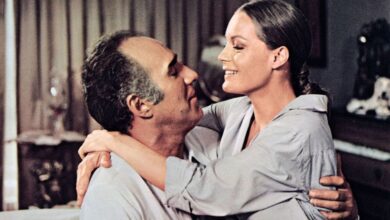Spider-Man (2002): “With Great Power Comes Great Responsibility”

🎥 A Hero is Born — But at What Cost?
In 2002, Spider-Man swung into theaters and rewrote the rules of cinematic heroism. Directed by Sam Raimi and starring Tobey Maguire, this wasn’t just a film — it was a visceral awakening of a generation’s imagination. Beyond the web-slinging and dazzling skyscraper stunts, Spider-Man tore open the tender heart of every viewer with one chilling line whispered in a dying breath: “With great power comes great responsibility.”

💥 The Pain Behind the Mask
Peter Parker isn’t your typical superhero. He’s not invincible. He bleeds, he loves, he fears — and worst of all, he loses. Raimi’s lens didn’t glorify the power; it magnified the pain. The moment Uncle Ben’s lifeless hand slips from Peter’s grasp, cinema held its breath. That wasn’t just the death of a beloved character — it was the death of Peter’s innocence. From that moment, the mask wasn’t just a disguise… it was a burden.
🔥 Love, Guilt, and the Weight of Choice
His love for Mary Jane burns quietly beneath layers of fear and regret. Every look, every near-kiss crackles with tension — a young man torn between desire and duty. Raimi crafts a tale where every heroic act rips Peter further from the life he longs for. The green menace of Norman Osborn only sharpens this agony. Spider-Man is a love story wrapped in tragedy, where the heart’s deepest longing is sacrificed on the altar of responsibility.

🎯 A Legacy Etched in a Single Sentence
“With great power comes great responsibility” didn’t just echo through the film — it thundered into pop culture, branding itself onto the soul of every viewer. It’s not a mere quote. It’s a haunting reminder that real power isn’t in strength… it’s in the courage to do what’s right, even when it destroys you inside.
Spider-Man (2002) remains more than a superhero movie. It’s a raw, pulsating exploration of sacrifice, love, and the brutal price of destiny — a story that dared us all to look behind the mask… and see ourselves.





